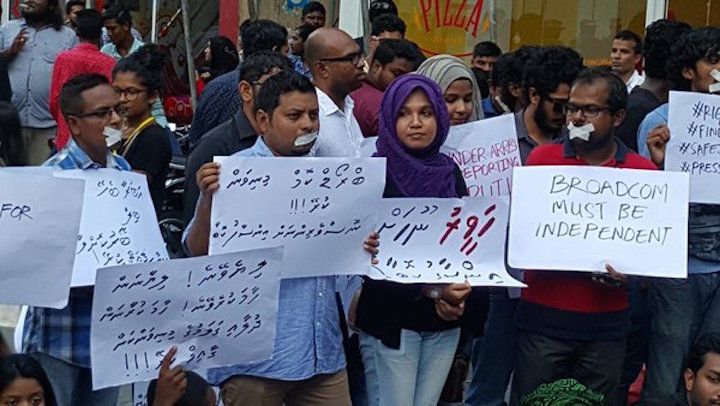Police defend blocking silent march for press freedom
The journalists were not allowed to march as closing down the capital’s main thoroughfare would have caused traffic jams and posed difficulties to pedestrians and businesses, the police said. The journalists accused the police of violating their right to freedom of assembly, which is guaranteed in the constitution “without prior permission of the state.”

09 Apr 2016, 09:00
The police have defended blocking a silent march organised by journalists Friday afternoon in Malé to raise concerns over threats to press freedom in the Maldives.
The journalists were not allowed to march as closing down the capital’s main thoroughfare would have caused traffic jams and posed difficulties to pedestrians and businesses, the police said in a statement last night.
Despite blocking the walk, the police gave the journalists “the opportunity to raise their voices and took measures for the safety of the participants of the march.”
About 50 journalists – representing almost all private media outlets in the country – gathered at the artificial beach around 4:30pm and were greeted with a heavy police presence. Three police vans and dozens of riot police officers were on alert in the area.
Become a member
Get full access to our archive and personalise your experience.
Already a member?
Discussion
No comments yet. Be the first to share your thoughts!
No comments yet. Be the first to join the conversation!
Join the Conversation
Sign in to share your thoughts under an alias and take part in the discussion. Independent journalism thrives on open, respectful debate — your voice matters.




